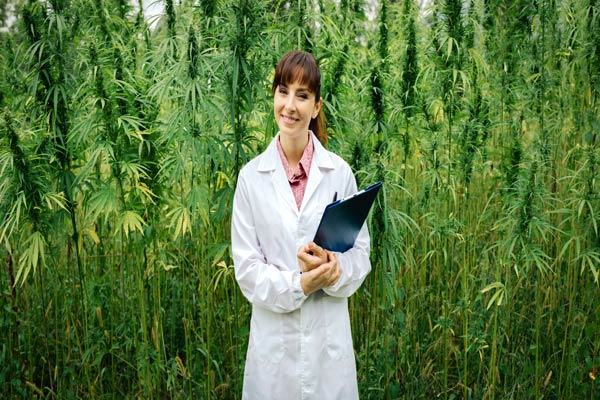There has been a rapid change in how Americans view marijuana legalization from 30 years ago. Back in the late ’80s, only about 24% of Americans supported legalization. In 2018, around 66% of Americans were for legalizing marijuana. California was the first state to legalize marijuana for medical use in 1996, and since then several states have followed suit. Currently, there are 36 states and 4 territories that have approved marijuana for medical use; 15 of the 36 states and 3 of the 4 territories have also approved marijuana for recreational use. What has changed in the past 30 years?
Is THC a Beneficial Drug?
The media has a lot to do with why people now want marijuana legalization. People started supporting it and getting on board shortly after the media began to talk about the medicinal value of marijuana. In a recent Gallup poll, 86% of supporters say the medicinal benefits of marijuana are the reason they favor legalization. The Centers for Disease Control says:
Cannabis-based products, such as man-made cannabinoid-based medications, may help prevent and ease nausea caused by chemotherapy. For adults with multiple sclerosis-related muscle spasms, short-term use of certain man-made and cannabinoid-based medications improved their reported symptoms. There’s a lot of uncertainty around using cannabis for chronic pain. Cannabis-based products may help treat chronic pain in some adults, but more information is needed to know if pain relief from cannabis is any better or worse than other pain management options, such as over-the-counter drugs like ibuprofen or alternative treatments like occupational therapy. More research is needed to know the specific indications, ideal doses, and how to avoid adverse effects—such as headache, nausea, sleepiness, and dizziness—that are related to medical cannabis use. (Centers for Disease Control)
More About Legalization of Marijuana
Some of the other use that people have listed marijuana as being effective in treating include: depression and anxiety, insomnia, chronic pain, treatment of minor injuries, relaxation, other non-pain medical conditions, disease or ailment prevention, and improvement of physical health. Most people view cannabis as being more effective than over-the-counter and prescription pharmaceuticals, and they also believe marijuana to be healthier and more natural treatment. Another reason that people are now in favor of legalization is to free up law enforcement. Many believe that law enforcement could be focusing on more serious crimes to ensure public safety. They also believe this will reduce the number of people in corrections and reduce court costs.
Should Marijuana Be Legalized?
Legalizing marijuana would bring one of the nation’s largest cash crops which will create jobs and economic opportunities formally instead of illicitly. It is also believed that legalization would reduce harm to young people and young black and Latino men. Back in the ’80s, there were numerous people of color put behind bars due to the “war on drugs” and sentencing reform laws. One of the other arguments that people have used in the support of legalization is that no deaths have ever been reported due to a marijuana overdose. Marijuana is said to have fewer side effects than many other legalized drugs. Alcohol is legal and is the 4th leading preventable cause of death in the United States.
Treatment of Addiction Can Include Marijuana Dependency
If you or someone you love is struggling with an addiction (even to marijuana), our addiction specialists are available around the clock to assist you. Evoke Wellness offers safe medical detoxification in a comfortable environment and with minimal discomfort. We provide residential treatment in a structured environment and then provide you with aftercare support to help lead you on a road to long-lasting recovery. You don’t have to suffer any longer from the harms of addiction.



